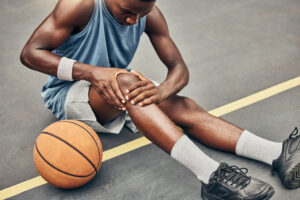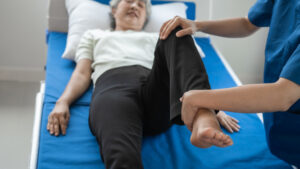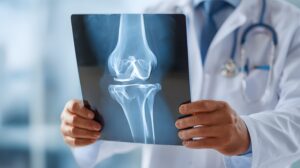The #1 Knee Mistake and 4 Common Causes Explained

What Is the Most Painful Knee Problem?
Knee pain can be sharp, dull, or constant—but certain injuries are known to cause especially intense discomfort. According to Dr. Garret Sobol, a fellowship-trained orthopedic sports medicine specialist at AOSMI, the knee’s complex structure makes it vulnerable to a few particularly painful conditions.
The most painful knee problems may include:
ACL (anterior cruciate ligament) tears: Often cause sudden pain and instability after a quick turn or jump.
Meniscus tears: The cartilage can tear during twisting motions, leading to sharp pain and locking.
Advanced Osteoarthritis: The protective cartilage wears down, creating bone-on-bone pain that worsens over time.
Knee fractures: Direct trauma can cause severe pain, swelling, and difficulty moving the knee.
Each condition can significantly limit activity and may require individualized orthopedic evaluation to determine the most effective care options.
What Is the #1 Knee Mistake?
The most common mistake patients make with knee pain is ignoring early symptoms. Many people continue training, running, or climbing stairs, assuming the pain will fade. Unfortunately, in some cases, this may lead to worsening injury.
Dr. Sobol explains that “even minor knee pain may signal inflammation, a small tear, or overuse strain. Continuing to push through discomfort can increase the risk of chronic pain or long-term joint issues.”
If your knee pain persists for more than a few days or interferes with daily activities, it’s important to get evaluated. Early diagnosis often helps prevent more complex conditions later.
What Are Four Common Causes of Knee Pain?
Knee pain can affect people of all ages, from athletes to active adults, and it often develops for specific, preventable reasons.
Dr. Sobol explains that “four common causes of knee pain include overuse injuries, arthritis, ligament injuries, and meniscus or cartilage tears.”
Each condition affects the knee in a different way:
- Overuse injuries: Repetitive motions such as running, squatting, or jumping can irritate the tendons and cartilage around the joint, leading to inflammation and soreness.
- Osteoarthritis: Degenerative or inflammatory changes can wear away protective cartilage, causing stiffness, swelling, and long-term discomfort.
- Ligament injuries: Sudden stops, pivots, or impacts during sports can stretch or tear key stabilizing ligaments like the ACL, MCL, or PCL.
- Meniscus or cartilage tears: A twisting motion under pressure can tear the cushioning structures inside the knee, leading to pain, catching, or locking sensations.
Each cause may feel different, which is why a professional assessment helps determine the safest and most effective recovery plan.
When to See an Orthopedic Specialist
It may be time to see an orthopedic specialist if your knee pain:
- Persists longer than a few days
- Causes swelling, locking, or instability
- Limits your ability to walk or bend comfortably
- Follows an injury or audible “pop”
FAQs
Q: What can make knee pain worse?
Ignoring pain, skipping rest, or continuing high-impact exercise can worsen symptoms.
Q: Should I ice or heat a painful knee?
Ice may help reduce swelling after an injury; heat can ease stiffness once inflammation improves.

Request an Appointment with Dr. Garret Sobol in Freehold or Monroe
Garret L. Sobol, MD, FAAOS is a Board-Certified Orthopedic Surgeon and Fellowship-Trained Sports Medicine Specialist at Advanced Orthopedics and Sports Medicine Institute (AOSMI) in Freehold and Monroe, NJ. He provides comprehensive care for sports-related injuries and degenerative conditions of the shoulder, elbow, hip, and knee, emphasizing conservative treatment and patient-centered care.
*This blog from AOSMI is intended for educational purposes only. It is not a substitute for professional medical advice, diagnosis, or treatment. Patient outcomes are not guaranteed, and results may vary. Always consult a qualified healthcare professional for personalized care.

